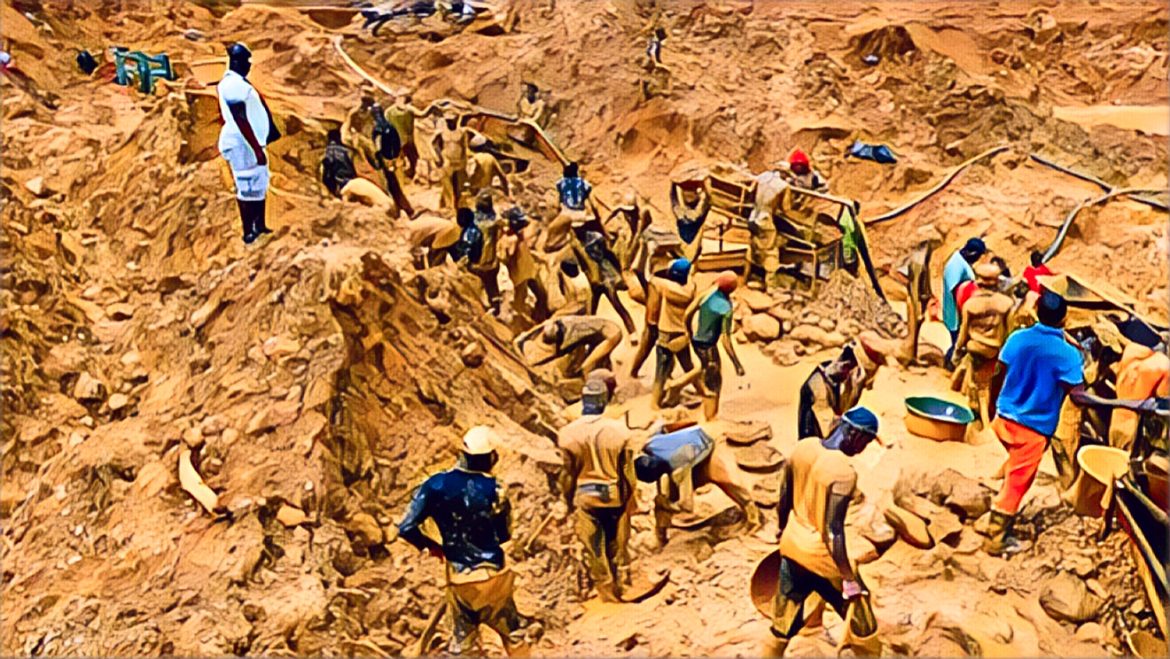KEY POINTS
- Responsible sourcing standards can strengthen global gold supply chains.
- Artisanal miners face dangerous conditions, exploitation, and environmental hazards.
- Gold smuggling fuels international crime, corruption, and illicit financial flows.
Artisanal and small-scale gold mining (ASGM) accounts for 20% of the global annual gold supply and employs about 80% of the total workforce in bullion production. However, the sector is fraught with challenges, including poor working conditions, environmental degradation, and exploitation. According to the World Gold Council (WGC), implementing responsible sourcing standards can help strengthen global gold supply chains and mitigate these issues.
Strengthening gold supply chains through responsible artisanal mining
The WGC emphasizes that mandatory responsible sourcing rules across all jurisdictions would be pivotal in improving the sector. “The introduction of legally enforceable and mandatory responsible sourcing rules in all jurisdictions would mark an important step in strengthening global gold supply chains,” said the WGC.
Countries like South Africa, Zimbabwe, Mali, and the Democratic Republic of Congo (DRC) are leading gold producers on the African continent. Despite their contributions, artisanal miners—locally referred to as Zama Zamas in South Africa and amakorokoza in Zimbabwe—often disrupt formal mining operations and invade closed mines. This creates safety hazards and contributes to environmental degradation.
The WGC recommends creating domestic frameworks to integrate artisanal mining into formal gold supply chains. Such measures can improve miners’ livelihoods while ensuring environmental standards and labor rights are upheld.
The risks and exploitation in artisanal gold mining
Millions depend on artisanal mining for their livelihoods, but the sector’s challenges are undeniable. Artisanal miners often work in dangerous conditions, with little regard for safety protocols. Mercury use, child labor, and environmental destruction are rampant, further exacerbating the challenges.
“Many employed in the sector have no choice or viable economic alternative,” noted the WGC. Exploitation of miners, including underpayment and child labor, is widespread. These issues are aggravated by illegal mining operations, which contribute to international crime, corruption, and conflict.
Despite these challenges, the high gold price—rising over 40% in the last two years—has intensified the allure of the trade. “Sustained high gold prices provide an additional incentive for participation,” said David Tait, CEO of the WGC.
Addressing smuggling and financial crimes in the gold sector
Newzimbabwe.com reported that in 2019, data revealed over 25 tons of gold worth more than $1 billion were smuggled from South Africa alone. Sudan, Zimbabwe, Mali, and the DRC also recorded significant smuggling activities, fueling illicit financial flows and international crime.
The WGC hopes South Africa’s G20 presidency in 2025 will prioritize measures to combat these issues. “These important economic and geopolitical groupings offer an opportunity to safeguard ASGM communities and prevent gold smuggling,” the WGC stated.
Implementing responsible standards could mitigate exploitation and ensure sustainable practices in the artisanal gold mining sector.


